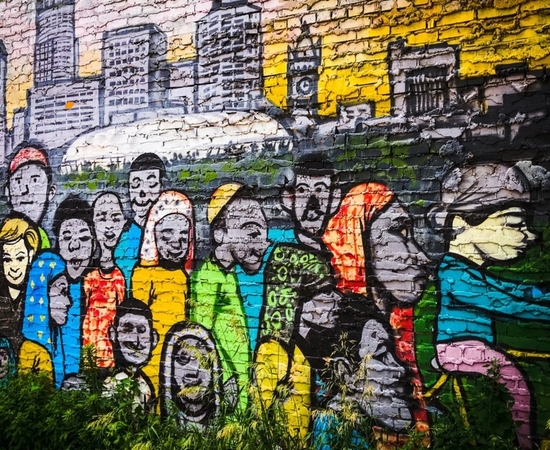
We are still beginning to understand the full impact of the COVID-19 global pandemic on the United States, but it is already clear that the disease has disproportionately affected immigrant, Black, Indigenous, Latinx, Asian American and Pacific Islander communities. Many are at the frontlines of "essential" industries and have been at greater risk of infection and mortality. Some have been in industries that have shut down or greatly contracted during the pandemic. Others have been at the forefront of increased PPE distribution and vaccine development. This panel highlights emerging immigration histories of the pandemic to help us explore the roots of these contemporary challenges as well as how historians have begun to document the pandemic's impact on immigrants and refugees.
Moderator: Jennifer Gunn, IAS
Speakers:
-
Wayne Soon (PhD Princeton) is an Assistant Professor of History at Vassar College. His book, Global Medicine in China: A Diasporic History (Stanford University Press, 2020), tells the global medical histories of Chinese East Asia through the lens of diasporic Chinese medical personnel, who were central in introducing new practices of military medicine, blood banking, mobile medicine, and mass medical training to China and Taiwan. Universal care, practical medical education, and mobile medicine are all lasting legacies of this effort on both sides of the Taiwan Straits. His current research projects are centered around the history of health insurance and medical practices in postwar Chinese East Asia as well as the transpacific history of SARS and COVID-19. Dr Soon’s published articles can be found in Twentieth Century China, Bulletin of the History of Medicine, American Journal of Chinese Studies, and East Asian Science, Technology and Society: An International Journal.
-
Erika Lee is a Regents Professor of History and Asian American Studies and Director of the Immigration History Research Center at the University of Minnesota. The granddaughter of Chinese immigrants, Lee was recently elected to the American Academy of Arts & Sciences and serves as the vice president of the Organization of American Historians. She is the author of four award-winning books: At America's Gates: Chinese Immigration during the Exclusion Era, 1882–1943; Angel Island: Immigrant Gateway to America (co-authored with Judy Yung); The Making of Asian America: A History; and the recently-published America for Americans: A History of Xenophobia in the United States.
-
Maddalena Marinari is associate professor of history at Gustavus Adolphus College. She has published extensively on immigration restriction and immigrant mobilization, including articles published in the Journal of Policy History, Journal of Gilded Age and Progressive Era, Social Science History, and Journal of American Ethnic History. She is the author of Unwanted: Italian And Jewish Mobilization Against Restrictive Immigration Laws, 1882-1965 and a co-editor of A Nation of Immigrants Reconsidered: U.S. Society in an Age of Restriction, 1924-1965. She is also one of the scholars who created the #ImmigrationSyllabus, an online tool for anyone interested in understanding the history behind current debates on immigration.
-
Lei Zhang is a Ph.D. candidate of American studies at the University of Minnesota. His dissertation, “Chinese Student Migration and the Trans-Pacific Making of Chinese America” examines the contestations and complicities between American policymakers, Chinese students, and the Chinese government near the end of the Cold War, and their implications for global race-making and U.S.-China relations.
-
Eunice Kim is a 2nd-year graduate student in the history department at the Univeristy of Minnesota. Her research interest is in transpacific migration, with a focus on how Asian migrant communities have maintained their transnational connections during the latter half of the 20th century. She worked in migration/refugee advocacy organizations in South Korea before coming to UMN.
-
Catherine Lim is a senior at Gustavus Adolphus College, where she is majoring in biology and history with concentrations in Europe and the United States. Her interest in history stems from growing up in a multicultural family that frequently travels abroad. These experiences have allowed her to gain new perspectives and appreciation of diverse cultures, traditions, and histories. Lim will be attending the University of Minnesota-Twin Cities College of Pharmacy this fall where she aspires to work towards providing quality pharmacological care to all, while also inspiring the next generation of scientists. When she is not studying, she enjoys hiking and spending time with her family.
- Lillie Ortloff is a junior at Gustavus Adolphus College, where she is majoring in history with minors in gender, women, and sexuality studies and public health. She has taken particular interest in World War II, and the intersection of race and feminism in the twentieth century. Ortloff has spent her summers interning at local museums and plans on pursuing a degree in museum curating. In her time away from studying history she enjoys swimming with her college team and reading a good book in a hammock.
Co-sponsored by the Immigration History Research Center and the Institute for Advanced Study.